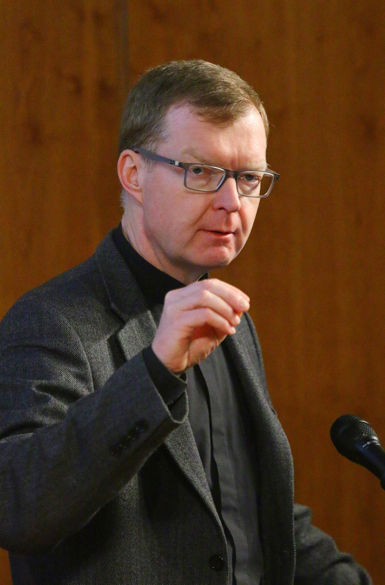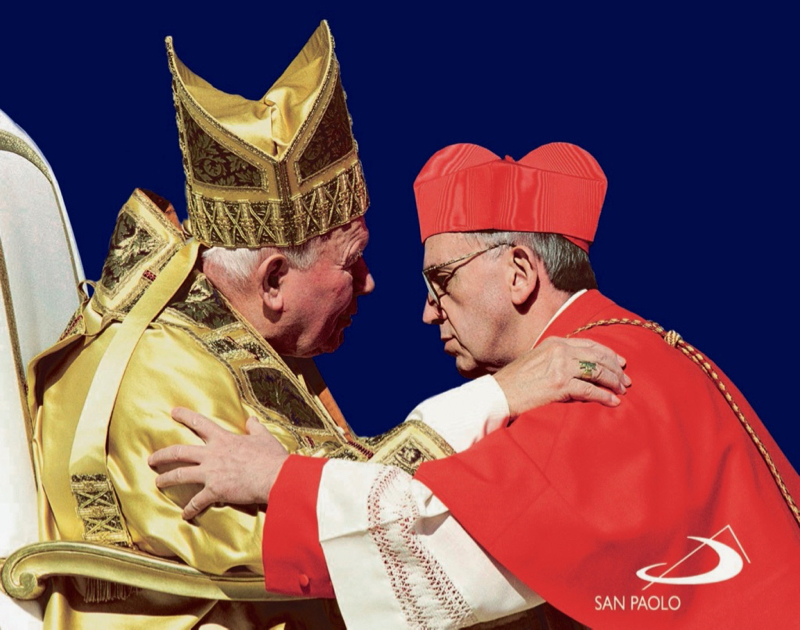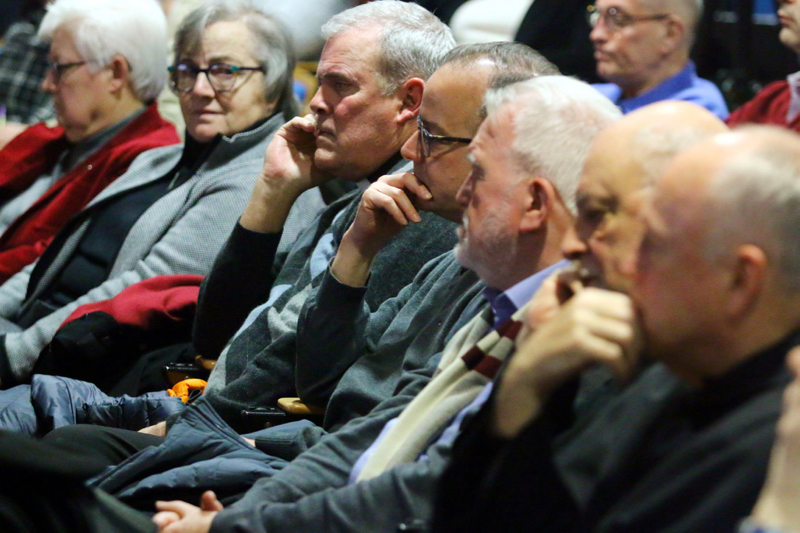The Church has been damaged by the sexual abuse crisis, but people have been damaged more, according to a leading Vatican safeguarding expert.
Fr Hans Zollner SJ, a member on the Pontifical Commission for the Protection of Minors, told a conference in the US: "Much damage has been done to the church" due to clergy sexual abuse, said Fr Zollner, "but more damage has been done to human beings." In responding to this crisis, "many people are engaged in the same mission: a safer church and a safer world," he said.
Almost 200 people filled the Driscoll Hall Auditorium at the Augustinian Catholic University of Villanova in Pennsylvania, looking to deepen their understanding about global perspectives on the sexual abuse crisis in the Catholic Church.
The evening event was the third conference in the four-part series of discussions with Catholic theologians hosted by Villanova to examine the abuse crisis. It featured Fr Zollner, a licensed German psychologist and psychotherapist with a doctorate in theology and one of the church's leading experts in the area of safeguarding minors.
Fr Zollner is also the president of the Centre for Child Protection at the Pontifical Gregorian University in Rome, and an adviser to the Vatican's Congregation for Clergy.
The crisis is one of "institutional traumatisation" in which wrongdoings have been perpetrated by an institution upon individuals dependent on that institution, according to Fr Zollner, who said "steps forward" to address it globally are being made in Rome.
It has been about 35 years since awareness of the sexual abuse crisis in North America first arose, and he noted other events around the world such as in Germany where "the Jesuit director of a school in Berlin broke ranks and spoke about abuse at his school", a reference to Canisius-Kolleg Berlin, a Catholic university-preparatory school in Berlin.
Pope Francis "created huge uproar and criticism" in 2018 regarding then-Fr Fernando Karadima, Chile's most notorious clerical abuser, when the pontiff said he "needed proof" of the allegations against the priest. The pope later read the report on the priest and apologised for his statement. Pope Francis expelled him from the priesthood in 2018.
As a result of the crisis in their country, 34 Chilean bishops offered their resignations to the pope.
The situation in Chile was a "turning point on how we look at the abuse crisis at this point in history," Fr Zollner said, adding this "underlined the systematic failure in dealing with the abuse. The church system is put on the spot."
There's also been "increasing focus on the abuse of adults" due to former Cardinal Theodore McCarrick, said Fr Zollner, who cited the abuse of religious women in the church.
"Twenty years ago, nobody cared," he said. "The untouchables" – senior leadership in the church around the world – "have become the target of criticism. The level of trust is below zero, and this is devastating for an institution based on trust and faith."
He described the crisis as marked by similarities regardless of country or continent, including the presence of clericalism, in which clergy are shown excessive deference and a presumption of moral superiority. It as an attitude of being "above the law" and "no one can tell me what to do; I can take whatever I want", Fr Zollner said.

Jesuit Fr Hans Zollner, president of the Center for Child Protection at the Pontifical Gregorian University in Rome, spoke about about global perspectives on the sexual abuse crisis in the Catholic Church. CNS photo/Sarah Webb, CatholicPhilly.com
Another global similarity is the "neglect, denial and rejection of survivors" who feel great discomfort and fear. All of the church must remember that the majority of victims "are still members of the church whether they go to church or not," he said. "There are members of this church who hurt."
Although the Vatican has universal oversight of the Catholic Church, it is woefully understaffed to respond to cases of clergy sexual abuse, with only a staff of about 18 people who "don't have the infrastructure or the training to deal with the reported incidents that have come in," Fr Zollner said.
He pointed to great progress being made at the Vatican, with a meeting for the protection of minors held in February 2019, which stressed a systematic approach of responsibility, accountability and transparency, both internal and external.
The meeting, according to Fr Zollner, has brought about changes of attitude regarding canon law, accountability among bishops and everyone's duty to report sexual and other types of abuse in the church. "Many more changes have been made than I had anticipated," he said. "The top has understood the message, and there is movement forward."
Catholic theology can also provide a way forward through the abuse crisis, according to Fr Zollner. "What does God, the Lord of the church and of history, call us to through the scandals and crises of this time?" the priest asked, adding there is an opportunity now to ask who we want to be as a church.
"We believe in Jesus who made himself vulnerable, "exposing himself to death," said Fr Zollner. "He shows the wounds of crucifixion even after rising. We forget where we come from – we come from the cross. Original sin makes us forget about our roots."
The fourth and last conference in the Villanova series will March 21 at Villanova's Charles Widger School of Law. The day will conclude with a 5pm Mass dedicated to the victims of sexual abuse in the church.
In her introduction to Fr Zollner, Kerry Robinson, global ambassador for Leadership Roundtable, an organisation of laity, religious and clergy working together to promote best practices and management accountability in the US Catholic Church, said: "Fr Zollner is committed to providing a safe environment for children," said
Myers writes for CatholicPhilly.com, the news website of the Archdiocese of Philadelphia.



 Loading ...
Loading ...